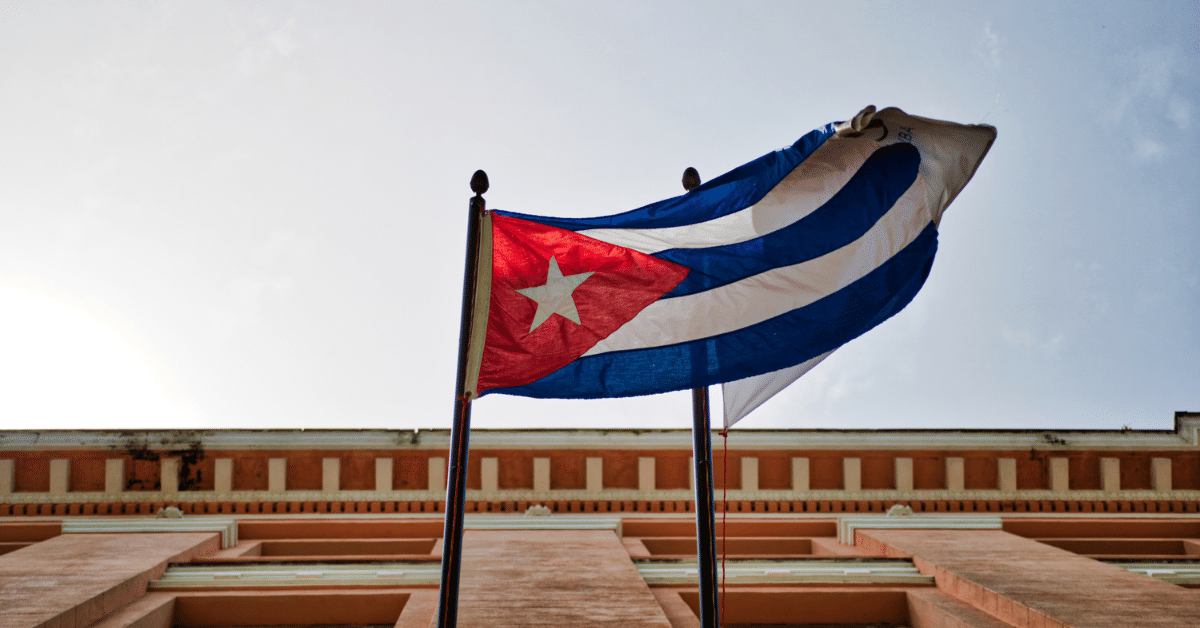America Must Rethink Its Cuba Policy

The Biden administration just announced a deal to delist Cuba as a state sponsor of terror. In return, the communist regime will release more than 500 political prisoners whose only crimes are that they chose to peacefully stand against abject oppression. While the release of those held captive is commendable, one must ask: is it wise to deal with the devil?
Make no mistake, this gesture from Havana does not change the fact the regime continues to stifle dissent at home, sow chaos in its neighborhood, and allow global despots to use the island as a nexus of tyranny, only a few miles away from the United States.
What this move does signal, however, is American weakness to communist bullying, something the Cuban regime understands how to exploit.
Today, democratic nations face persistent threats from regimes that no longer hide their abuses behind their borders, instead engaging in transnational repression, electoral manipulation, disinformation campaigns, and espionage with little fear of repercussions. The importance of Cuba as a strategic node of this global campaign against the free world bears reexamination, particularly since the policy shift towards Cuba, starting with the Obama administration.
Beijing’s intelligence network in Havana was recently highlighted in a report by the Center for Strategic and International Studies (CSIS). Titled “China’s Intelligence Footprint in Cuba: New Evidence and Implications for U.S. Security,” the paper reveals that China has established multiple intelligence facilities on the island, enabling it to monitor US military and government communications. Satellite imagery has revealed significant infrastructure developments at four sites, including a new radar facility near Santiago de Cuba. This facility could allow Beijing to monitor US air and maritime activities over vast distances, posing a serious challenge to American national security.
Russia also considers Cuba a strategic ally in its global campaign of repression. Last July, Russian President Vladimir Putin sent three warships to Cuba. This show of force followed a renewed economic partnership between the two nations as Moscow’s Caribbean gambit blossomed in neighboring Venezuela and Nicaragua.
Back on the communist island, the release of political prisoners is certainly a victory for human rights. It does not, however, absolve the Cuban government of crimes against its citizens. The regime’s brutal treatment of José Daniel Ferrer García, a peaceful opposition leader and recipient of VOC’s Truman-Reagan Medal of Freedom, who is among those released, illustrates the ongoing injustices within the Cuban system. Ferrer’s detention, marked by reports of torture and mistreatment, is a stark reminder that the regime’s gestures of goodwill are often just that: gestures.
The Biden administration’s decision to remove Cuba as a state sponsor of terror sends a misleading signal, as it appears to show leniency towards a regime that not only suppresses its own people but also facilitates the operations of authoritarian powers that threaten global democracy. The United States must carefully consider the implications of such a concession and prioritize policies that address both human rights and the strategic interests of the democratic world.
Hernán Alberro is a Senior Fellow with VOC’s Latin America Program. All opinions are those of the author and do not necessarily represent the position or views of the institutions they represent or VOC.

